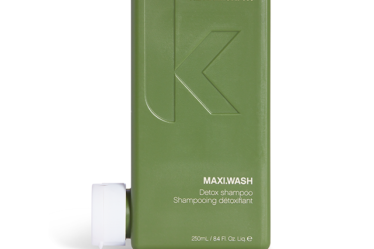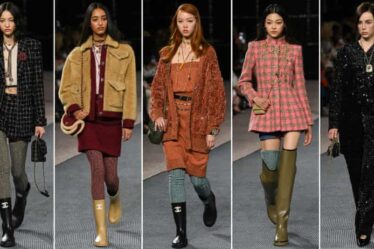
NEW YORK, United States — As with many beauty products in the world of luxury, it turns out that toothpaste isn’t really necessary.
Sure, it can freshen breath and help whiten teeth, but the real benefits of brushing come from the bristles on a toothbrush and their ability to scrape and disrupt dental plaque that leads to tooth decay and gum disease. Along with flossing once a day — arguably the most important — brushing twice daily is crucial to preventing oral infections, according to the American Dental Association.
One aspect of toothpaste that does make a difference though is fluoride, which combats the first stage of tooth decay, called demineralisation. In that respect, if you’re not getting fluoride by some other means, toothpaste is your best bet.
“If a toothpaste doesn’t contain fluoride, I wouldn’t recommend it,” says Jessica Hilburg, associate professor of dental medicine at the Touro College of Dental Medicine. Most of the other aspects of toothpaste, including foaming agents, tasty flavourings, and bright packaging are just add-ons and could technically be eliminated, but what’s the fun in that? For a hygiene ritual so integral to your day, you might as well enjoy it.
The global toothpaste market was valued at $26 billion in 2018 and is expected to reach $36 billion by 2024, and a new crop of more decadent products is now carving out a share.
Packaging, Flavour
Last year, musician Lenny Kravitz helped launch Twice, a premium toothpaste with an Early Bird flavour (wintergreen and peppermint) and Twilight flavour (peppermint with vanilla and lavender), sold on its website at $17 for a pack of two. And Aesop Dentifrice Toothpaste ($17) continues the Australian brand’s takeover of your bathroom; released in 2017, it has sea buckthorn to relieve gum aggravation, as well as cardamom and wasabi extract to freshen breath—although it lacks fluoride.
They join classics such as Italian brand Marvis, founded in 1958, which has apothecary-chic packaging and toothpastes in such flavours as jasmine, ginger, and licorice ($12), sold at Barneys New York and Sephora. There’s also French brand Buly 1803, whose fluoride-free toothpastes ($29) are blended with mineral-rich thermal water from Castéra-Verduzan, the first spa town in France, and sold on Net-a-Porter; they come in flavours such as apple, orange-ginger-clove, and mint-coriander-cucumber.
By comparison, you can get a two-pack of Crest from Target for less than $5.
“They’ve gone into the market trying to please the consumer more aesthetically, and people like that” Hilburg says.
“Regular toothpaste has very, very bad packaging,” says Victoire de Taillac, co-founder of Buly 1803, which feature a vintage-looking snake on its tubes. “Toothpaste is often something that men will buy. Men use less beauty products than women, but men are very particular [about toothpaste]. ”
Fluoride Alternatives
One of the more ornate products on the market is Theodent, which first launched in 2012 in Whole Foods and is now sold through Amazon.com. The formula incorporates cocoa beans and a fluoride alternative called rennou and is packaged in brown tubes that resemble chocolate bars, with shiny, gold lettering and caps.
Regular toothpaste has very, very bad packaging.
Arman Sadeghpour, chief executive and co-founder of the brand, says that even though it doesn’t contain fluoride, rennou can grow individual unit crystal in (i.e., remineralise) your enamel in much the same way. The classic offering is crystal mint-flavoured and costs $16, but the clinical-strength version with a higher concentration of rennou will set you back $100 for a tube.
“There are a lot of folks that are concerned with getting too much fluoride,” says Jim Ratcliff, CEO of Rowpar Pharmaceuticals, which manufactures toothpaste brand Closys ($7) in both fluoride and fluoride-free varieties. Sold in mass retailers such as Walgreens and Walmart, Closys instead uses stabilised chlorine dioxide, which is naturally activated by the amino acids in saliva, to impede plaque formation and kill harmful bacteria.
“A lot of the folks who buy our products are looking for things that are as non-irritating and don’t contain any more dangerous chemicals than is necessary,” Ratcliff continues. (It’s true that swallowing a lot of toothpaste can be bad for you, so most dentists simple say don’t: Just use a pea-sized amount; it’s not necessary to fill up the bristles.)
Split the Difference
Lawrence Fung, a dentist who started Silicon Beach Dental in Los Angeles, suggests that if you’re seeking fluoride alternatives, just split the difference and alternate between a fluoride-free toothpaste and one containing fluoride. At the end of the day, cleaning the teeth is the most important thing.
Although he’s a big fan of Aesop, stocking the brand’s hand wash and mouth rinse in his practice’s bathrooms for patients who include players for the Los Angeles Clippers and the Los Angeles Rams, Fung uses the Hello brand, which launched in 2013 and is now sold at Whole Foods and Ulta, among other retailers.
“They have potassium nitrate in it, which is really helpful for sensitivity,” Fung says. “They are not extremely holistic, but not as mainstream as some of the bigger brands.”
Hello toothpastes start at $3.99, for kids’ formulas in flavours such as apple and watermelon, and go up to $9 for whitening and charcoal options. Extracts such as açai, dragon fruit, and hemp, along with bright colours on the packaging, are designed to add some fun to dental care, explains founder Craig Dubitsky.
Dubitsky came up with the idea for the brand after noticing the unappealing packaging of mass-marketed toothpaste brands, often featuring extracted teeth. “Everything in the category to me seemed to be about fear and shame,” he says. Instead, his toothpastes, with the friendly moniker “Hello,” come in both fluoridated and fluoride-free varieties, with cheerful colour options, including a millennial pink tube.
Despite the growing luxury alternatives to workaday Crest, Fung and Touro College’s Hilburg both agree that the best toothpaste to buy is the one that you will actually use.
“If people love something, it’s hard to put a price on that,” Fung says. “If it makes them want to brush three times a day, then it is worth more.”
By Claire Ballentine; editor: Justin Ocean.


